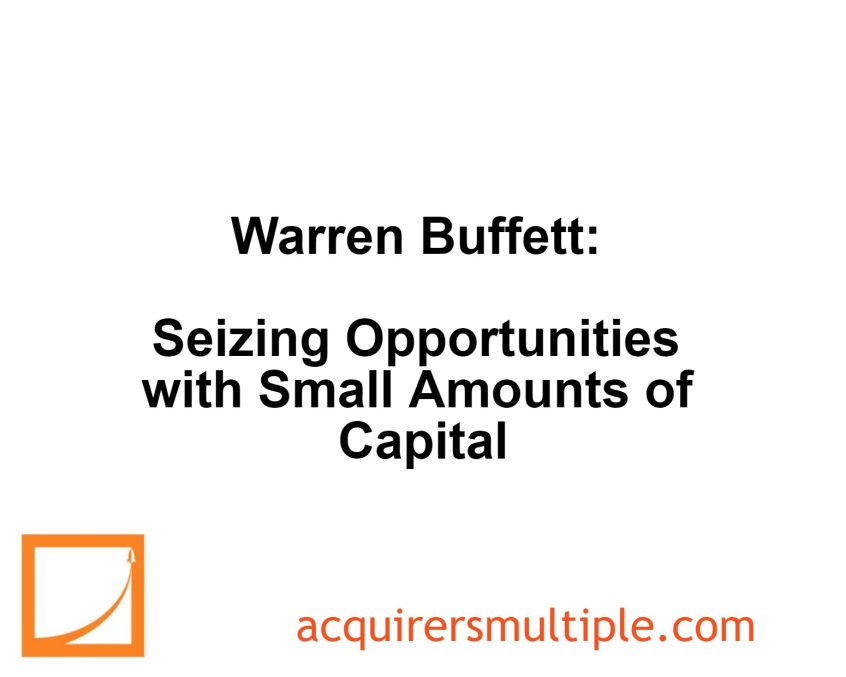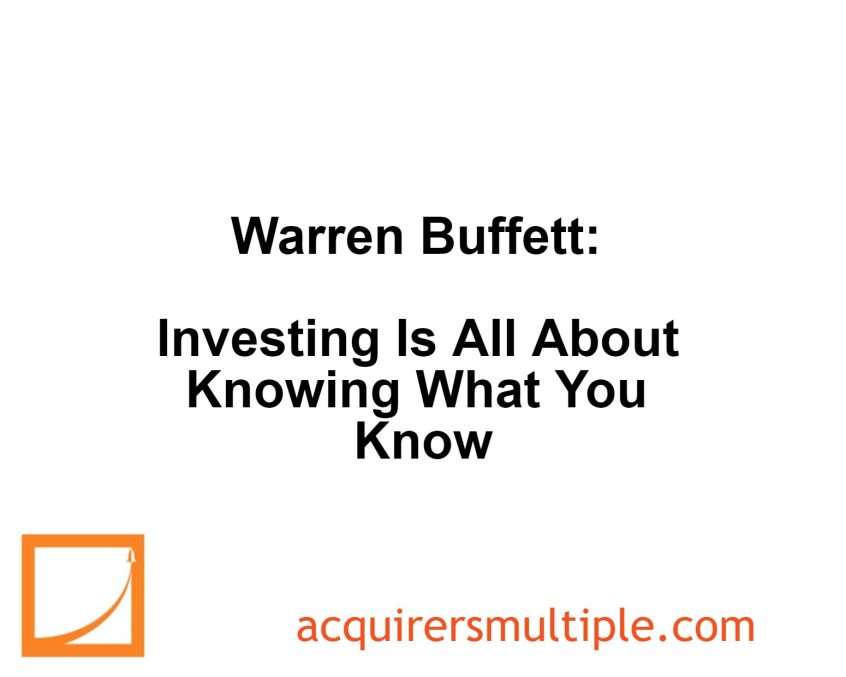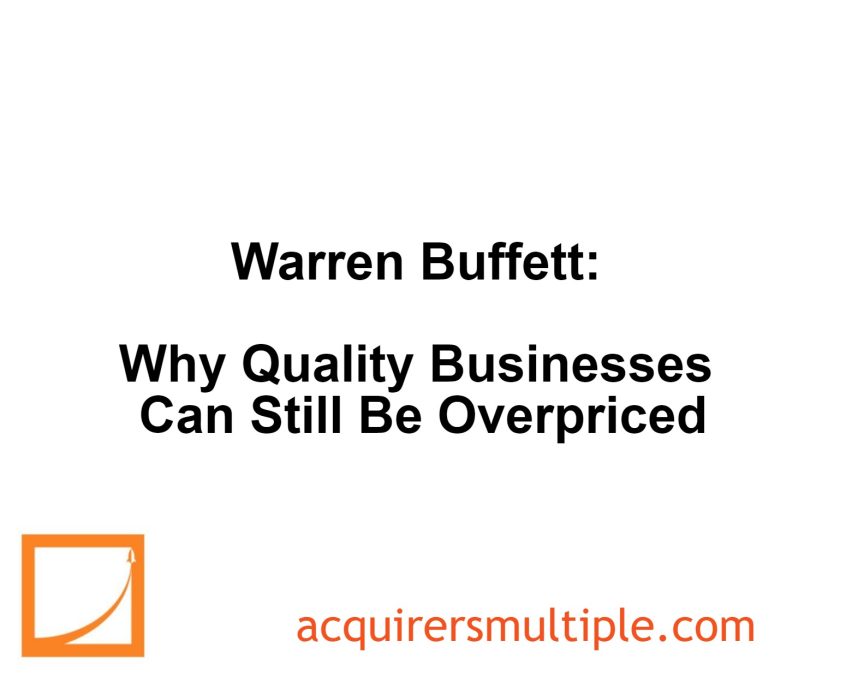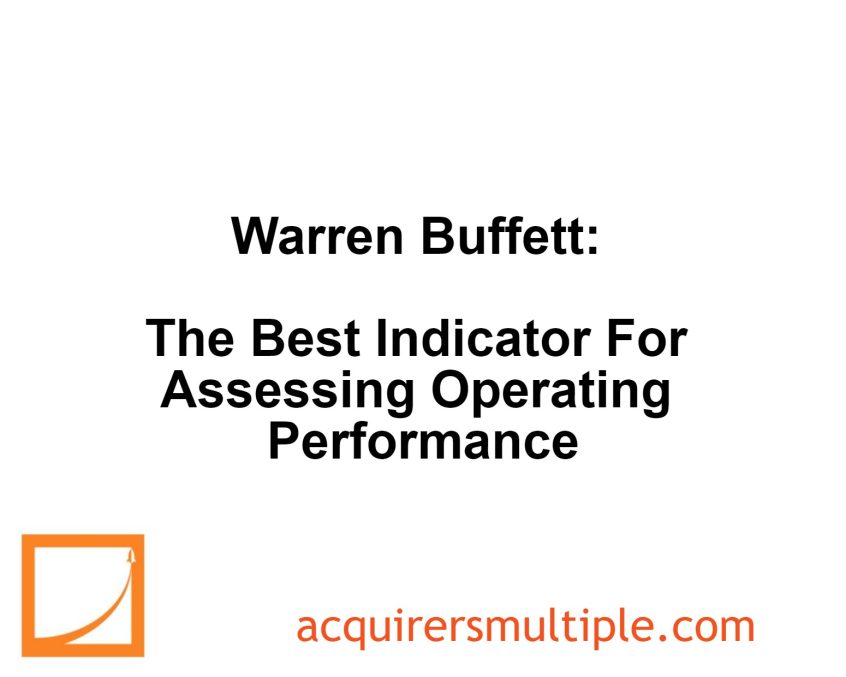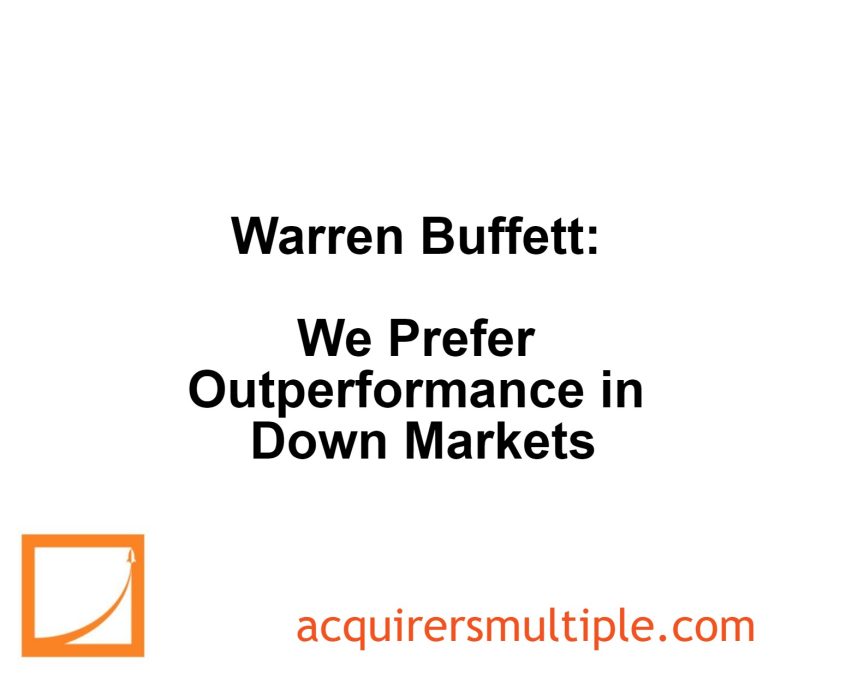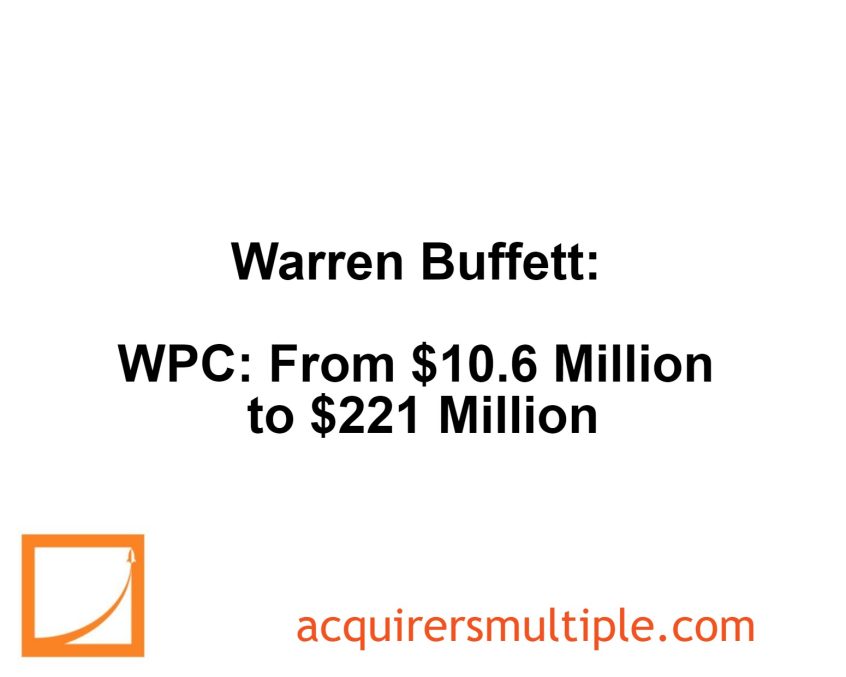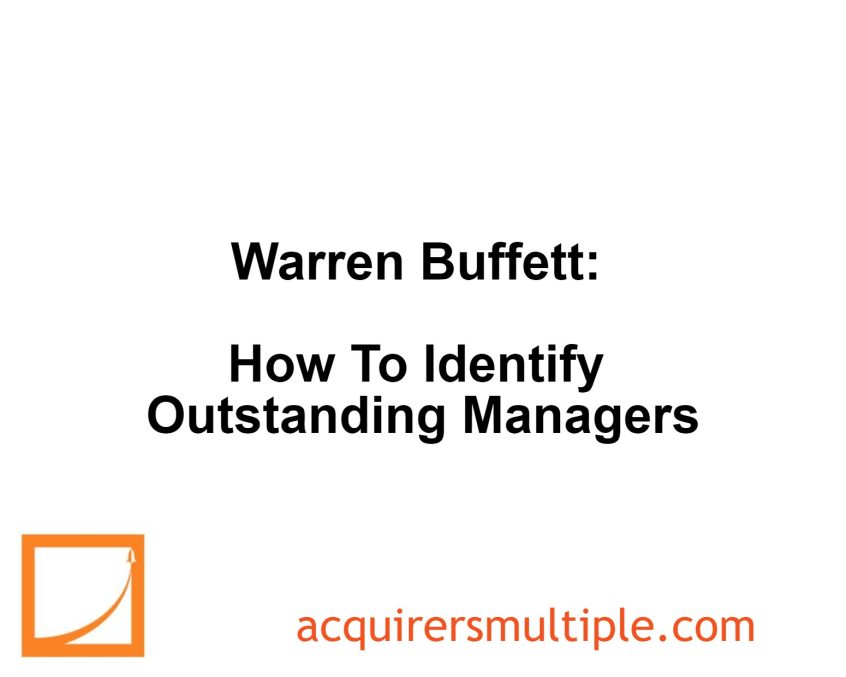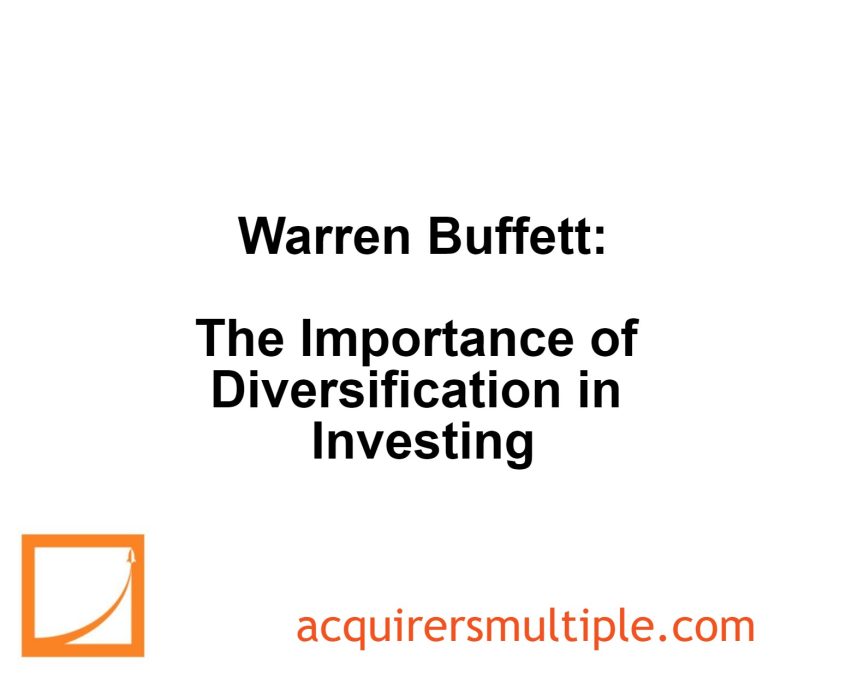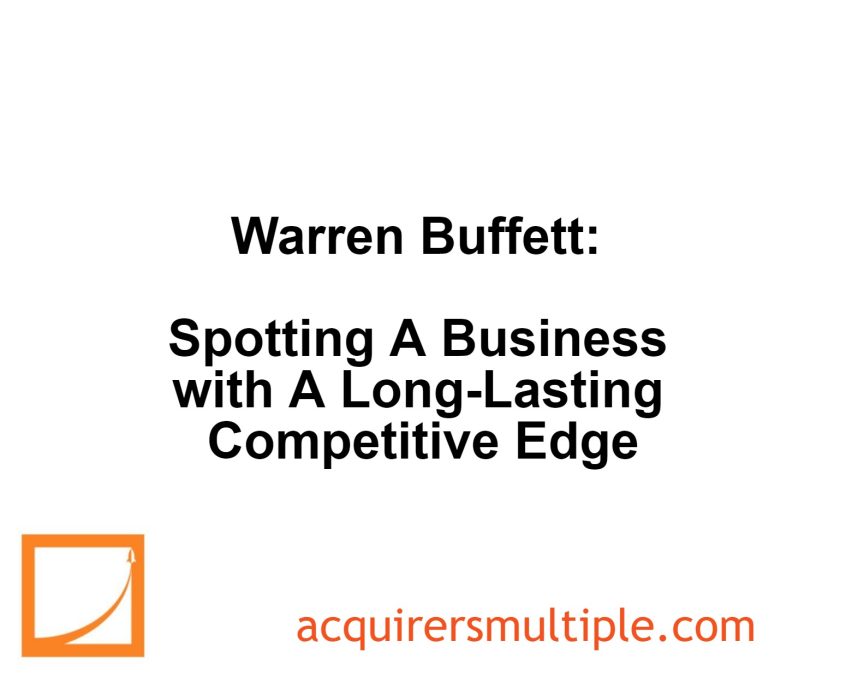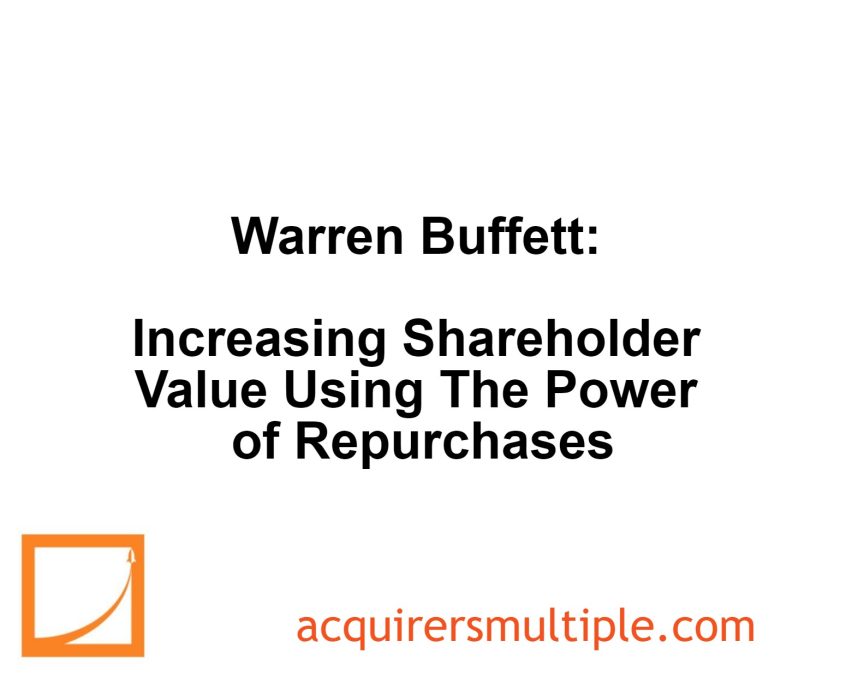During the 2010 Berkshire Hathaway Annual Meeting, Warren Buffett discusses the perpetual presence of investment opportunities, particularly for those not managing large sums of money. He highlights the inherent conflict in the investment management industry, where asset gathering can overshadow asset management. Buffett illustrates this with an example from Charlie … Read More
Warren Buffett: Investing Is All About Knowing What You Know
In his 1999 Berkshire Hathaway Annual Letter, Warren Buffett explains that he and Charlie Munger aren’t distressed by their lack of tech insights, as there are many areas where they lack expertise. They avoid making judgments in fields like patents and manufacturing, focusing instead on operating within their circle of … Read More
Warren Buffett: Why Quality Businesses Can Still Be Overpriced
During the 1997 Berkshire Hathaway Annual Meeting, Warren Buffett discussed his annual report, in which he described Coke and Gillette as “The Inevitables,” noting their exceptional businesses but warning against overpaying for their stocks, which can lead to short-term risks. He emphasized that his praise shouldn’t be seen as an … Read More
Warren Buffett: Choosing the Right Discount Rate for Valuations
During the 1996 Berkshire Hathaway Annual Meeting, Warren Buffett explained that when determining a discount rate for valuing future cash flows, he prefers using the long-term government bond rate. He avoids adding extra risk premiums for different businesses, arguing that it’s more important to focus on businesses with predictable futures. … Read More
Warren Buffett: The Best Indicator For Assessing Operating Performance
In his 1979 Berkshire Hathaway Annual Letter, Warren Buffett explained why the most appropriate way to measure annual operating performance is by the ratio of operating earnings to shareholders’ equity, valuing securities at cost. Using market value can distort performance due to fluctuations in securities’ market values. In 1979, Berkshire’s … Read More
Warren Buffett: We Prefer Outperformance in Down Markets
In his 1960 Partnership Letter, Warren Buffett outlines his goal of achieving long-term performance superior to the Industrial Average, emphasizing that this superior performance will not be consistently evident compared to the Average. He explains that outperformance is likely in stable or declining markets, while performance may be average or … Read More
Warren Buffett: WPC: From $10.6 Million to $221 Million
In his 1985 Berkshire Hathaway Annual Letter, Warren Buffett explained how in mid-1973, he purchased Washington Post Company (WPC) shares at a quarter of their business value, capitalizing on a significant market undervaluation. Most investors, influenced by academic theories on market efficiency, ignored intrinsic business value. By year-end 1974, despite … Read More
Warren Buffett: How To Identify Outstanding Managers
In his 1986 Annual Letter, Warren Buffett acknowledges his underperformance in deploying capital compared to the excellent management by his company’s managers. Buffett and Vice Chairman Charlie Munger focus on retaining talented managers, who typically come with acquired companies and perform exceptionally due to their passion and owner-like mentality. Their … Read More
Warren Buffett: The Importance of Diversification in Investing
During the 2021 Berkshire Hathaway Annual Meeting, Warren Buffett cautions new stock market entrants against excessive trading, urging them to consider the unpredictability of long-term success for major companies. He highlights a list of the 20 largest companies by market value as of March 31st, led by Apple. Buffett then … Read More
Warren Buffett: Spotting A Business with A Long-Lasting Competitive Edge
During the 2017 Berkshire Hathaway Annual Meeting, Warren Buffett explains how Berkshire Hathaway identifies businesses to acquire, emphasizing long-term competitive advantage, trusted management, and cultural fit. He recalls purchasing See’s Candy in 1972, highlighting their confidence in its lasting appeal despite higher prices. This confidence has led to significant profits … Read More
Warren Buffett: Increasing Shareholder Value Using The Power of Repurchases
In his 2020 Berkshire Hathaway Annual Letter, Warren Buffett discussed increasing shareholder value by using the power of repurchases. Buffett explained how the previous year Berkshire Hathaway repurchased 80,998 “A” shares for $24.7 billion, increasing shareholders’ ownership by 5.2% without additional investment. Warren Buffett and Charlie Munger made these repurchases … Read More
Warren Buffett: The 3 Ways Investors Self-Sabotage Their Returns
In his 2004 Berkshire Hathaway Annual Letter, Warren Buffett explained how in 2004, the stock market had a rare “normal” return of around 11.2%, a rate only seen once before in 35 years. Despite strong business performance making it theoretically easy to achieve high returns, many investors experienced poor results. … Read More
Warren Buffett: The Hidden Costs of High Stock Market Activity
In his 1983 Berkshire Hathaway Annual Letter, Warren Buffett criticizes the high activity in the stock market, which brokers promote using terms like “marketability” and “liquidity.” He argues that frequent trading benefits brokers but not investors, as it incurs significant costs. Using a hypothetical company earning 12% on equity with … Read More
Warren Buffett: The Futility of Following Public Opinion in Stocks
During the 1994 Berkshire Hathaway Annual Meeting, Warren Buffett advises against making investment decisions based on others’ opinions, highlighting the irrelevance of public opinion polls in achieving financial success. Instead, he advocates for personal evaluation of businesses. He and Charlie Munger ignore market predictions and analyst opinions, focusing instead on … Read More
Warren Buffett: We All Make Mistakes: Not Everything Works Out As Planned
In his 2013 Berkshire Hathaway Annual Letter, Warren Buffett discusses the diverse range of companies in Berkshire Hathaway, from those with exceptional profitability to those with poor returns due to his misjudgments. Fortunately, his major acquisitions have generally been successful. Overall, the companies employed $25 billion of net tangible assets … Read More
Warren Buffett: Invest in Commercial “Cash Cows” for Compounding Returns
In his 2011 Berkshire Hathaway Annual Letter, Warren Buffett explains why he advocates for investing in productive assets like businesses, farms, and real estate that can retain purchasing power during inflation while requiring minimal new capital investment. He highlights companies like Coca-Cola, IBM, and See’s Candy as meeting this criteria. Buffett … Read More
Warren Buffett: We Curate the Metropolitan Museum of Businesses
During the 2000 Berkshire Hathaway Annual Meeting, Buffett provides a story about Jack Ringwalt from 1967. He asked Ringwalt whether he preferred to sell his business, which he lovingly built, or risk it being mishandled after his death. By positioning Berkshire Hathaway as a “museum” where businesses are respected and … Read More
Warren Buffett: Investing Like Rip Van Winkle: A Guide to Long-Term Gains
In his 1989 Berkshire Hathaway Annual Letter, Warren Buffett explains that long-term investing, like his Rip Van Winkle approach, has a significant advantage due to tax timing. By comparing two scenarios, he shows that reinvesting after annual taxes over 20 years yields about $25,250, while a single long-term investment grows … Read More
Warren Buffett: Financial Deception: How Small Deceptions Lead To Habitual Dishonesty
In his 1998 Berkshire Hathaway Annual Letter, Warren Buffett critiques corporate manipulation of financial results using a humorous golf metaphor. He describes a golfer who records atrocious scores initially, then claims to “restructure” their swing and counts only good scores in subsequent rounds, thus masking true performance. Another tactic involves … Read More
Warren Buffett: Identifying Leaders Who Love Their Business
During the 1998 Berkshire Hathaway Annual Meeting, Warren Buffett offered several insightful lessons on business management, particularly in the context of acquisitions and leadership, including why it’s crucial to discern whether a business leader is driven primarily by a passion for their business or by financial gain. This distinction helps … Read More

